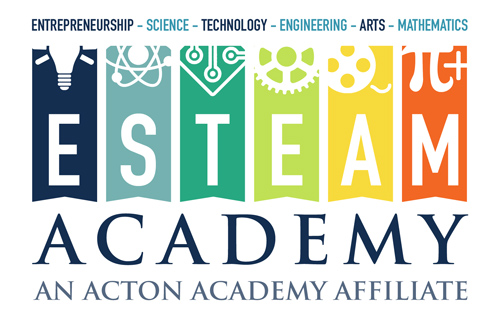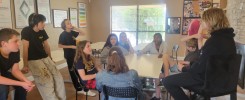At the heart of learner-driven education is agency—the ability for young people to take ownership of their learning and lives. But to truly return agency to our children, we must provide them with three vital components: time, tools, and trust.
Yet as parents, these can be some of the hardest gifts to give. Here’s why:
🌟 1. Time: The Space to Grow at Their Own Pace
Learning takes time—time to explore, fail, reflect, and try again. Yet in a world of schedules, milestones, and deadlines, it’s tempting to rush the process.
Why it’s hard: We worry that if our child “falls behind,” they’ll miss opportunities or struggle to catch up.
Shift in mindset: Growth doesn’t follow a straight line. When we honor their natural timeline, we give them the freedom to build mastery, not just compliance.
🌟 2. Tools: Equipping Learners for Independence
To foster independence, we must give learners the right tools—resources, frameworks, and systems that empower them to problem-solve and make meaningful choices.
Why it’s hard: It’s often faster (and more comfortable) to step in and do things ourselves. We fear that if they struggle, they’ll give up—or worse, fail.
Shift in mindset: Tools aren’t shortcuts; they’re scaffolds for self-reliance. With the right tools in their hands, learners become confident architects of their own success.
🌟 3. Trust: Letting Go of Control
Trust is the foundation of agency. When we trust learners to make decisions, face consequences, and learn from them, they begin to trust themselves.
Why it’s hard: Trusting means letting go of control—and that can feel risky. What if they make the wrong choice? What if things don’t go as planned?
Shift in mindset: Mistakes are powerful teachers. Trusting our children means believing in their resilience and capacity to grow, not protecting them from every misstep.
When we give learners time, tools, and trust, we empower them to lead their own Hero’s Journey.
As parents, the challenge is real—but so is the reward. Letting go of control doesn’t mean stepping back—it means stepping beside them, walking together with curiosity, humility, and hope.
💡 What’s one way you’ve practiced time, tools, or trust with your learner recently? What felt challenging—and what did you learn in the process?


